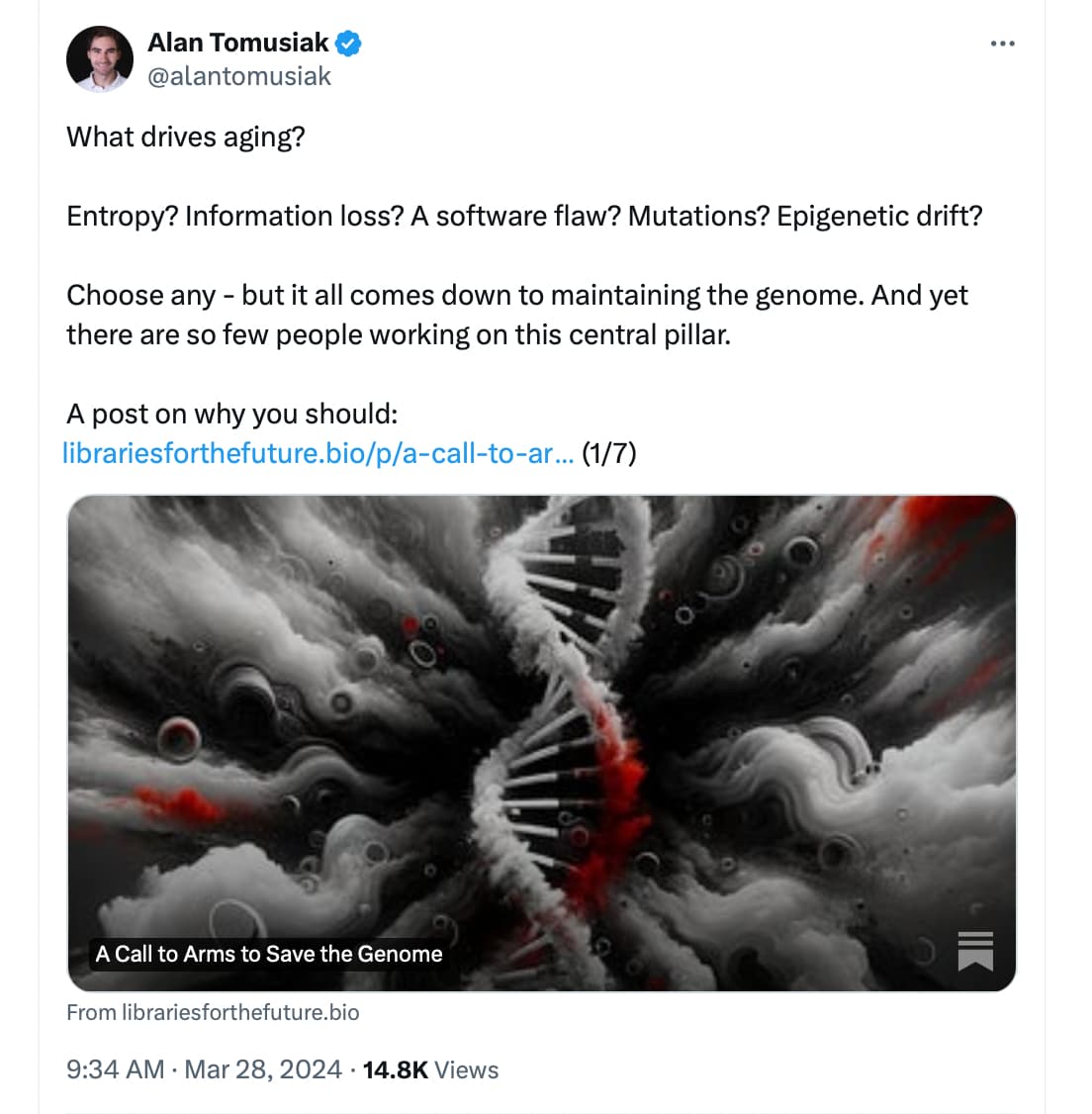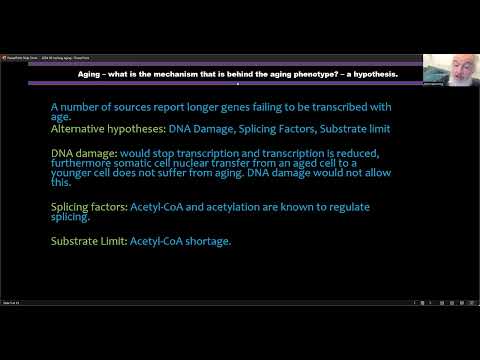https://twitter.com/alantomusiak/status/1773388258908737805
Full article:
TL;DR:
- The most effective way to slow down the boulder is by addressing genome instability , ideally as early as possible.
- There are clinically relevant areas for intervention where clinical trials could show promising results.
In a piece coming out in a few days (stay tuned!), I’ll dig deeper into the science underlying these interventions and lay out a new framework for looking at the field of genome instability in the context of aging.
1 Like
If it is DNA damage that causes aging then cloning would not work. Cloning produces a young animal from an “old” nucleus.
1 Like
This video is timed to start on the question of the potential reasons why longer genes are not transcribed.
Look for research on the “nine hallmarks of aging.” There are links to good articles on the Buck Institute website.
JP Magalhaes is skeptical of the thesis btw
Morten also says there are accelerated genomic aging phenotypes (Lynch) that drives mortality through cancer increase but aren’t sufficient to noticeably increase rate of aging on most lifespans
There are A LOT of correlations at the evolutionary level that don’t imply direct causation in all cases… [some of it b/c humans have SOME compensatory mechanisms in response to DNA damage LIKE THOSE IN THE BRAIn - Memories are made by breaking DNA — and fixing it - compensatory mechanisms to DNA damage in hippocampal neurons being a good example]
It’s worth noting the species level correlations of horvath epigenetic age (AND THE LACK OF FIXING HORVATH AGE) and all, but that doesn’t mean horvath markers are casual (there are better markers)
1 Like

